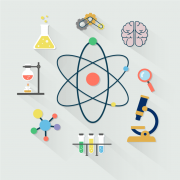How Has the Bible Transformed the World?
How did the world become the way it is today? Any serious answer to this question must acknowledge the tremendous influence the Bible has had on the world. Whatever you believe about the Bible’s spiritual claims, the best-selling book in history is foundational to many of the ideas and decisions we take for granted. Let’s examine just a few of the ways that the Bible has shaped society and, by extension, our everyday lives.
Many moral principles, such as treating people with dignity or helping someone who cannot repay you, are rooted in the ethical requirements of the Torah, which profoundly connects our obligations to God with our obligations to people.1 To mistreat a person is to also wrong God himself. For example, God warns that he will personally rectify any wrongdoing that an orphan or widow suffers, saying “If you do mistreat them, and they cry out to me, I will surely hear their cry” (Exodus 22:22–24). Failing to care for those around us means that we fail to honor God the way we should because each person is someone whom he made and loves (Genesis 1:26–28).
Perhaps Scripture’s greatest contribution to moral thought is the mandate to care for the vulnerable, such as foreigners, orphans, and widows (Deuteronomy 10:19; 27:19), a mandate that is particularly urgent because of God’s deep concern for those who are most likely to be taken advantage of, those who are outside our normal social sphere. The Bible challenges our tendency to fixate on our own desires and spurs us to care for those in need, giving specific guidelines to safeguard the rights of those who are most easily overlooked. For instance, the Torah teaches not to harvest one’s entire field or vineyard, thus allowing the poor to gather the surplus (Leviticus 19:9–10). Production efficiency is not to be valued more than human life.
The Bible is also among the world’s greatest forces for literacy. Scripture itself highlights the importance, and the joy, of learning its teaching (Deuteronomy 6:7; Psalm 119). Jewish culture has taken this priority seriously, thereby becoming the People of the Book. In fact, the Jewish community has been one of the most literate people groups in history. From ancient times, learning to read and interpret Scripture was essential, even among the lower classes in Jewish society. In later centuries, the ability to read the Bible facilitated the reading of secular texts, and studying the rabbinic debate surrounding the interpretation of Scripture helped foster analytic thought. Authors Maristella Botticini and Zvi Eckstein even argue that this unique historical emphasis on reading is a major reason why Jewish people today tend to be highly educated and be in highly skilled professions.2
Similar to their Jewish counterparts, many of the early settlers to North America were part of Christian religious groups that prized the ability to read the Bible. Early on, they passed laws mandating the creation of schools for reading-based education and when starting a new town, the one-room schoolhouse was one of the first buildings they constructed.3 This was the foundation for universal public education in America, and by the end of the 1700s, the people of North America were among the most literate in the world.
The Bible was also foundational to the development of modern science. What we mean is that the study of science rests on biblical preconditions, without which science would be unrecognizable. For example, Scripture describes God creating the universe with intention and rationality, with the result that the universe is orderly and follows predictable patterns (Genesis 1; Psalm 19:1–2). Likewise, humans are depicted as thinking beings who are capable of learning about the world around them (Genesis 1:26–28). Sociologist Rodney Stark summarizes these pivotal preconditions well: “Because God is a rational being and the universe is his personal creation, it necessarily has a rational, lawful, stable structure, awaiting increased human comprehension. This was the key to many intellectual undertakings, among them the rise of science.”4 It should be no surprise that the pursuit and development of science was encouraged most in historical societies where the Bible’s worldview was prevalent.5
Indeed, belief in a reasonable God and an understandable universe is what motivated many early scientists. For instance, Isaac Newton, whose writing is the basis of calculus and classical physics, ardently believed in God and thought his research demonstrated God’s rational creation of the universe. He even wrote, “Does it not appear from phenomena that there is a Being incorporeal, living, intelligent, omnipresent, who in infinite Space, as it were in his Sensory, sees the things themselves intimately, and thoroughly perceives them and comprehends them wholly?”6
The Bible has deeply shaped our lives today, including the way we think of right and wrong, our education system, and our understanding of the world. In fact, whenever you are helped by a stranger for nothing in return, read a book, or use your cellphone, you are enjoying one of the many societal benefits of Scripture.
Recommended Reading:
Mangalwadi, Vishal. The Book That Made Your World. Nashville: Thomas Nelson, 2012.
Pearcey, Nancy, and Charles B. Thaxton. The Soul of Science: Christian Faith and Natural Philosophy. Turning Point Christian Worldview Series. Wheaton, IL: Crossway Books, 1994.
Stark, Rodney. How the West Won: The Neglected Story of the Triumph of Modernity. Wilmington, Delaware: ISI Books, 2014.
Footnotes
- Jeremiah Unterman, Justice for All: How the Jewish Bible Revolutionized Ethics (Lincoln: University of Nebraska Press, 2016), 22.
- Maristella Botticini and Zvi Eckstein, “Jewish Literacy as the Road to Riches: The Chosen Path of the ‘Chosen Few,'” PBS NewsHour, August 21, 2013, https://www.pbs.org/newshour/economy/jewish-literacy-as-the-road-to (accessed July 8, 2020).
- Rodney Stark, The Victory of Reason (New York, NY: Random House, 2006), 192. In 1647, the Massachusetts Colony mandated that all children attend school and required that every town with a hundred households or more must establish a school. Many states followed this pattern.
- Ibid., 22, 25. In contrast, Stark explains that many religious systems do not posit a creation at all, meaning that the universe is mysterious and arbitrary. This idea would suggest that meditation and mysticism, rather than our rationality and physical senses, is the way to understand the world.
- Nancy Pearcey and Charles B. Thaxton, The Soul of Science: Christian Faith and Natural Philosophy, Turning Point Christian Worldview Series (Wheaton, IL: Crossway Books, 1994). Rodney Stark, How the West Won: The Neglected Story of the Triumph of Modernity (Wilmington, Delaware: ISI Books, 2014).
- Isaac Newton, Opticks, 4th ed. (London, UK: 1730), 370, https://www.gutenberg.org/files/33504/33504-h/33504-h.htm. Spelling and punctuation have been modernized.





 Credit: Freepik
Credit: Freepik


